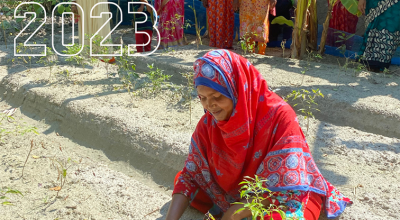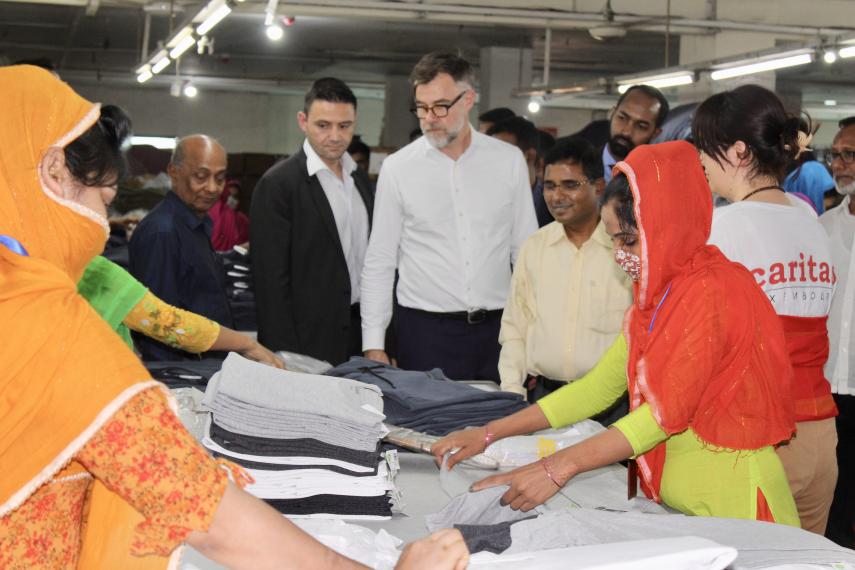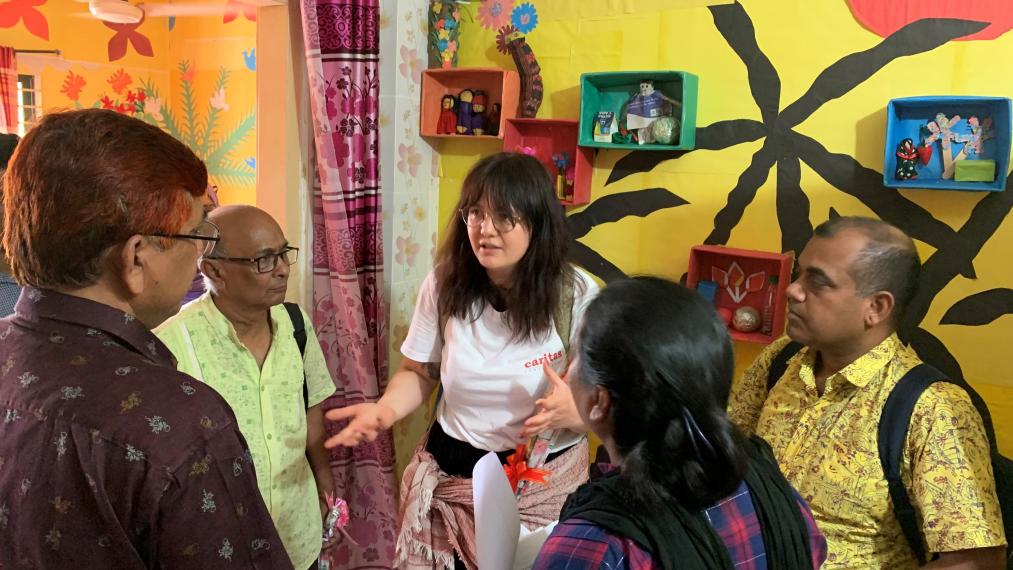
Caritas Luxembourg in Bangladesh
Tuesday 9 May 2023
Caritas Luxembourg had the great pleasure of showing two of its projects to the Minister for Cooperation and Humanitarian Action, Franz Fayot, who was visiting Bangladesh.
The first project (ANKUR project) aims to improve food security for the most vulnerable by helping them to improve and secure their income. The setting up of crèches enables mothers to go and work in factories, giving families a second income in the certainty that their children are in good hands. Women interested in setting up their own home-based childcare business are supported at all levels: training in running a home-based crèche and in early childhood development through childcare centres that serve as "model" centres for the project and that have become training centres over time; provision of capital to launch the business, etc. The project also provides technical support to existing crèches and other institutions (kindergartens, textile factories, etc.) for the management and creation of quality crèches and homes, and for raising awareness of the importance of taking early childhood development into account.
The second project (the UDDYAM project) aims to increase the food security and dietary diversity of particularly vulnerable people, including drug-addicted men and women, street children and young people living in shantytowns. Beneficiaries improve their nutrition through economic and social integration, improving their knowledge and skills in terms of nutrition and hygiene, and empowering communities to defend their interests and rights.
Finally, the Minister also visited a textile factory in Dhaka. The visit was part of the Plaidons Responsable programme's awareness-raising work on human rights issues in supply chains.
In Bangladesh, the textile industry remains the most important economic sector, with at least 4,000 textile factories employing more than 4.4 million workers. Today, the majority of these workers earn on average 2 to 5 times less than the living wage needed to live in decent conditions. The minimum wage in Bangladesh is Taka 1,500 (€13) a month, and textile workers earn an average of Taka 8,000 (€70) a month. However, even if they earn more than the minimum wage, the living wage would be Taka 54,000 (€470). Textile workers in Bangladesh cannot therefore be considered to be receiving a living wage, which is an infringement of a fundamental human right. As the largest importer of clothing in the world and one of the largest consumer markets for fashion, with sales expected to exceed €260 billion by 2022, the EU undeniably has a duty of responsibility towards these workers. It is in this context that Caritas Luxembourg has called on the Minister to support the "Good Clothes, Fair Pay" campaign - a European Citizens' Initiative (ECI) - to ensure that the European Union puts in place a living wage in the context of binding legislation on companies in terms of their duty of care with regard to human rights. To support this European Citizens' Initiative and sign up, go to https://www.goodclothesfairpay.eu/
Donate
Your donation is essential to ensure the continuity of Caritas Luxembourg's actions in the service of the poor.
Other donation methods


